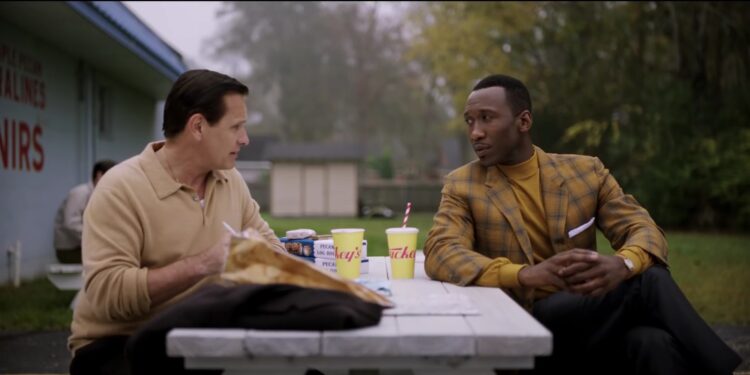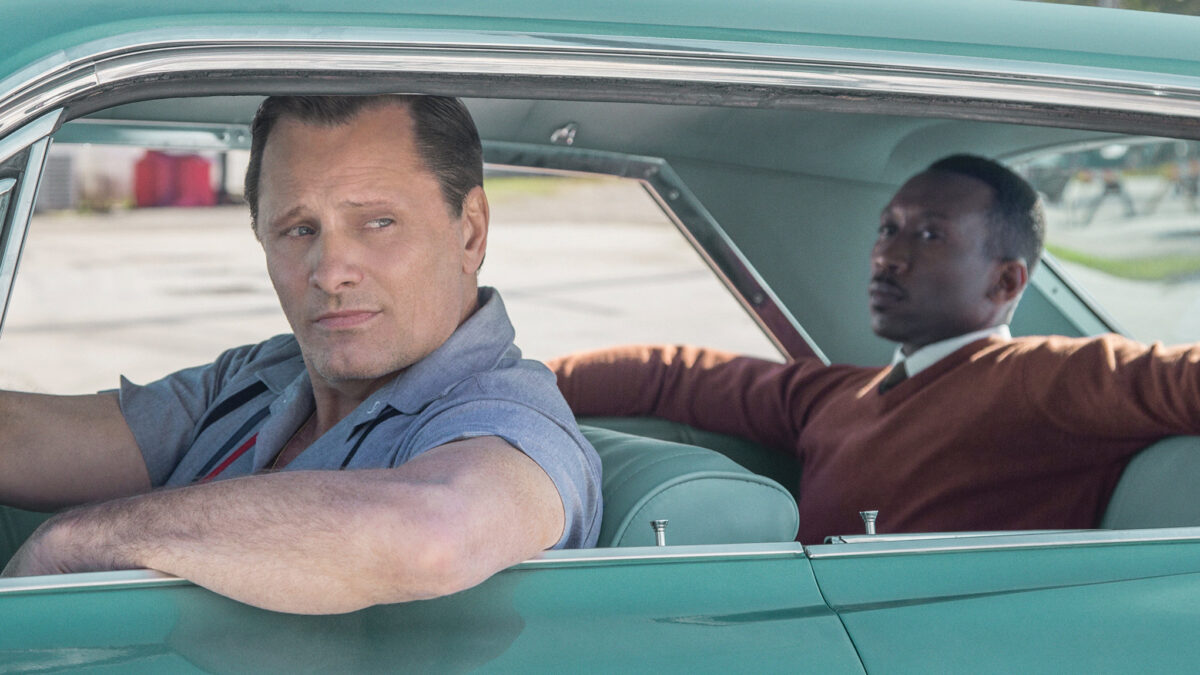I missed Green Book when it was released in 2018, but thanks to Netflix, I was able to watch this hugely entertaining and uplifting movie.
A drama with comedic overtones, it takes place in 1962, when Jim Crow racial laws were still deeply embedded in U.S. southern states.
During this era, African Americans driving through the South were turned away at roadside restaurants, motels and hotels, forcing them to stop at alternative places where they could expect decent treatment. The Negro Motorist’s Green Book, published annually from the mid-1930s to the mid-1960s, directed them to such addresses.
Peter Farrelly’s film, which is inspired by true events, uses the Green Book as a vehicle to build a strong and affecting story.
Donald Shirley (Mahershala Ali), an African American jazz and classical pianist and the principal in the Don Shirley Trio, hires Tony Villelonga (Vigo Mortensen), an Italian American nightclub waiter and bouncer, to be his chauffeur and personal assistant for an eight-week tour. They will spend a good part of it in the South, which is resisting desegregation efforts by the federal government.
Highly educated and well-spoken, Donald is at first haughty, arrogant and condescending. But as he warms to Tony, a rough-hewn and down-to-earth working-class guy from a tight-knit family, he begins to appreciate his qualities.
Tony’s instructions are to ensure that a bottle of Cutty Sark scotch is waiting for his boss in his room every day and that a Steinway piano will be at his disposal at the venues where he and his two colleagues are due to perform. Tony is also expected to protect Donald from violent racists.
As they get to know each other, Donald takes liberties, suggesting how Tony can improve his diction and recommending that he shorten his surname. Tony doesn’t necessarily agree with his ideas, but allows Donald to write his letters to his wife, Dolores (Linda Cardellini). As well, he learns to appreciate Donald’s talent as a musician.
“He don’t play like a colored guy,” he writes in one of his first letters to Dolores. This is meant as a compliment, but Tony is by no means tolerant of racial differences. Before embarking on the trip, two African American repairmen arrive at his house to fix an appliance. They’re offered something to drink, and after they finish, Tony throws away their glasses.
As the days fly by, Tony realizes that Donald is different from most African Americans in terms of his musical and culinary tastes. But to southerners, Donald is little more than an inferior black man who should know his place in a segregationist milieu.
In Louisville, a bunch of rednecks in a bar intimidate Donald, compelling Tony to intervene. In North Carolina, the manager of an inn informs Donald that its bathroom facilities are reserved for whites only, while the owner of a men’s wear shop tells Donald he’s not permitted to try on a suit unless he’s prepared to purchase one in advance.

These petty humiliations grate on Donald’s nerves and upset Tony. But they pale in significance next to an incident in Mississippi when a pair of bigoted highway patrol policemen stop their car and arrest them on charges of having broken the curfew of a “sunset” town.
During the Jim Crow period, an estimated 10,000 towns in the United States prohibited the presence of African Americans after sunset. When Tony protests, one the cops denounces him as a “half-nigger.”
In Birmingham, Donald is exposed to yet another indignity when the manager of a hotel restaurant refuses to let him dine there.
Green Book starkly exposes these cruel injustices, but above all it paints a picture of Tony’s evolving relationship with Donald. Tony is revealed as a person capable of overcoming his ingrained prejudices. Donald is portrayed as a conflicted soul — not culturally black enough for some African Americans, but nothing but a “nigger” to many Southern whites.
Mortensen and Ali deliver stellar performances, taking us back to a dark epoch when African Americans were subjected to blatant discrimination and humiliation in a country that prided itself on its democracy.
